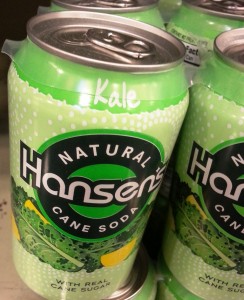I am the 2024 Joyce Lindower Wolitzer ’76 and Steven Wolitzer Seminar speaker and will be at Cornell for events connected with it. My Wolitzer talk, “Food Politics 2024: An Agenda for Action” is at 4:45 p.m. in 700 Clark Hall, followed by a book signing. No registration necessary, just come!
Evaporated cane juice: Sugar by any other name…
This question came in from Lourdes, a reader:
Would you please comment on these cases and the decisions regarding the issue [evaporated cane juice, apparently].
- http://www.law360.com/articles/481315/lifeway-accused-of-masking-smoothies-sugar-content?article_related_content=1.
- http://www.law360.com/articles/524647/cane-juice-labeling-suit-tossed-pending-fda-decision.
- http://www.law360.com/articles/474011/late-july-faces-false-ad-suit-over-evaporated-cane-juice-?article_related_content=1.
Happy to.
Evaporated cane juice is the food industry’s latest attempt to convince you that crystallizing sugar by this particular method will make you think it is:
- Natural and healthy.
- Better for you than table sugar.
- Much better for you than high fructose corn syrup (HFCS).
Maybe, but it’s still sugar.
Pushed by food companies to let “evaporated cane juice” be used on food labels, the FDA in 2009 issued one of those non-binding guidance documents it loves to do.
Over the past few years the term “evaporated cane juice” has started to appear as an ingredient on food labels, most commonly to declare the presence of sweeteners derived from sugar cane syrup. However, FDA’s current policy is that sweeteners derived from sugar cane syrup should not be declared as “evaporated cane juice” because that term falsely suggests that the sweeteners are juice…. FDA considers such representations to be false and misleading…because they fail to reveal the basic nature of the food and its characterizing properties (i.e., that the ingredients are sugars or syrups) as required by 21 CFR 102.5.
The FDA opened the matter up to public comment last month. In the meantime, evaporated cane juice is in the courts, where more and more food regulation seems to be taking place days except that judges are balking.
It’s a perfect Catch 22: The courts won’t rule until the FDA issues regulations. The FDA won’t issue regulations while the matter is in the courts.
The bottom line? As NPR puts it, “Sugar by any other name tastes just as sweet — and has just as many calories.”
To repeat: Evaporated cane juice is sugar. Cane sugar is sugar. All forms of sugar have calories, even when Kale flavored (thanks to Jill Richardson for sending this along).


